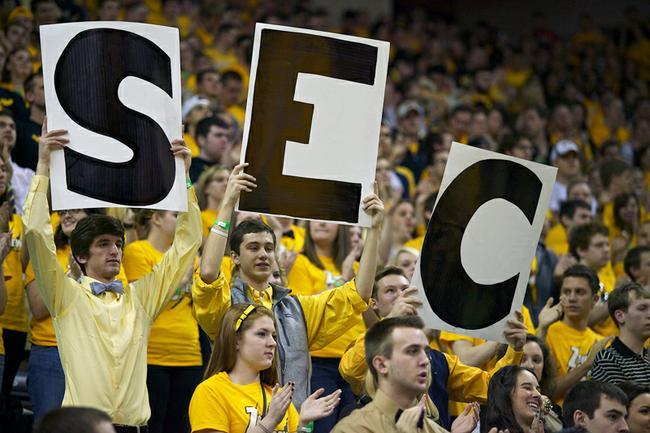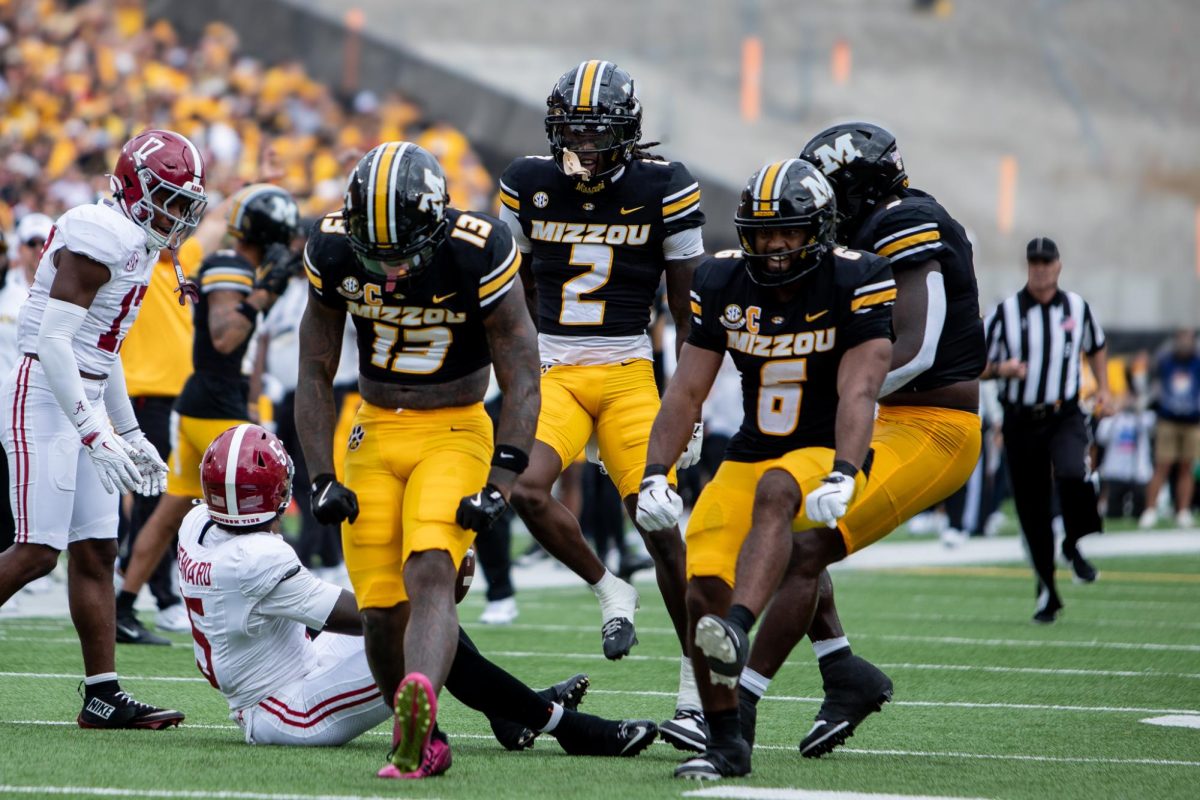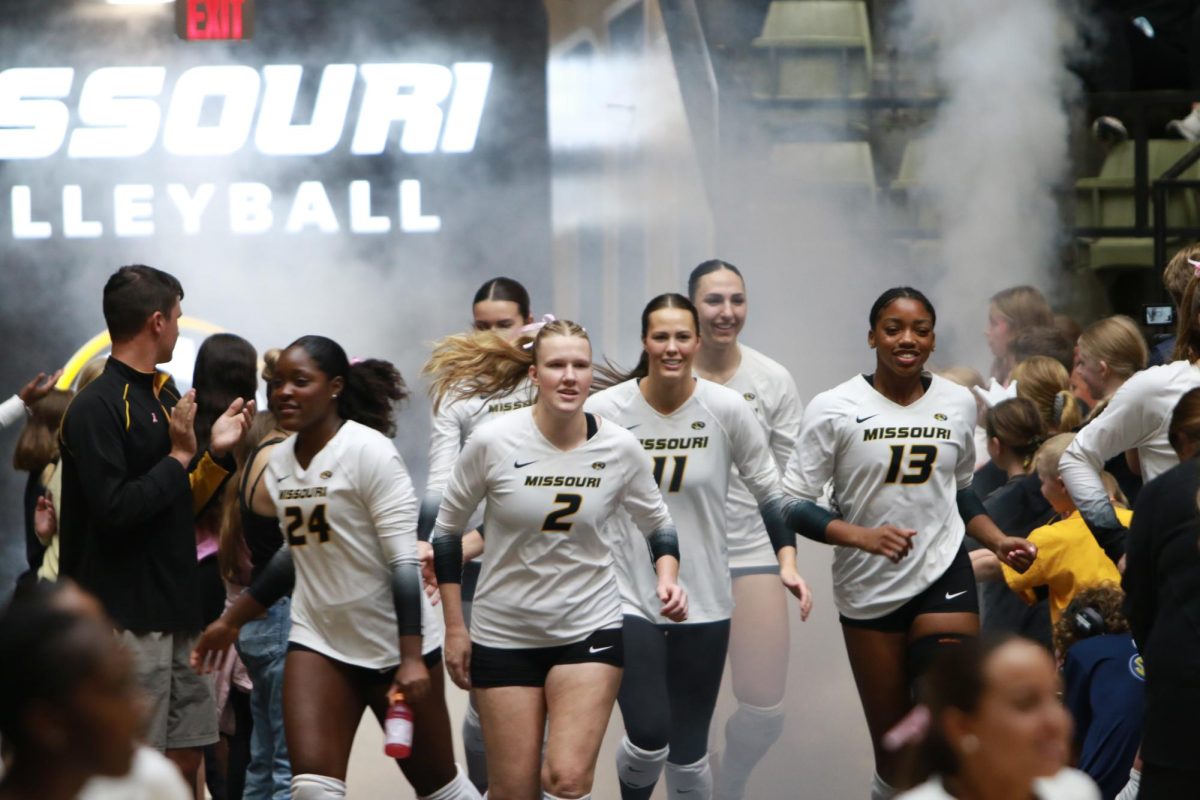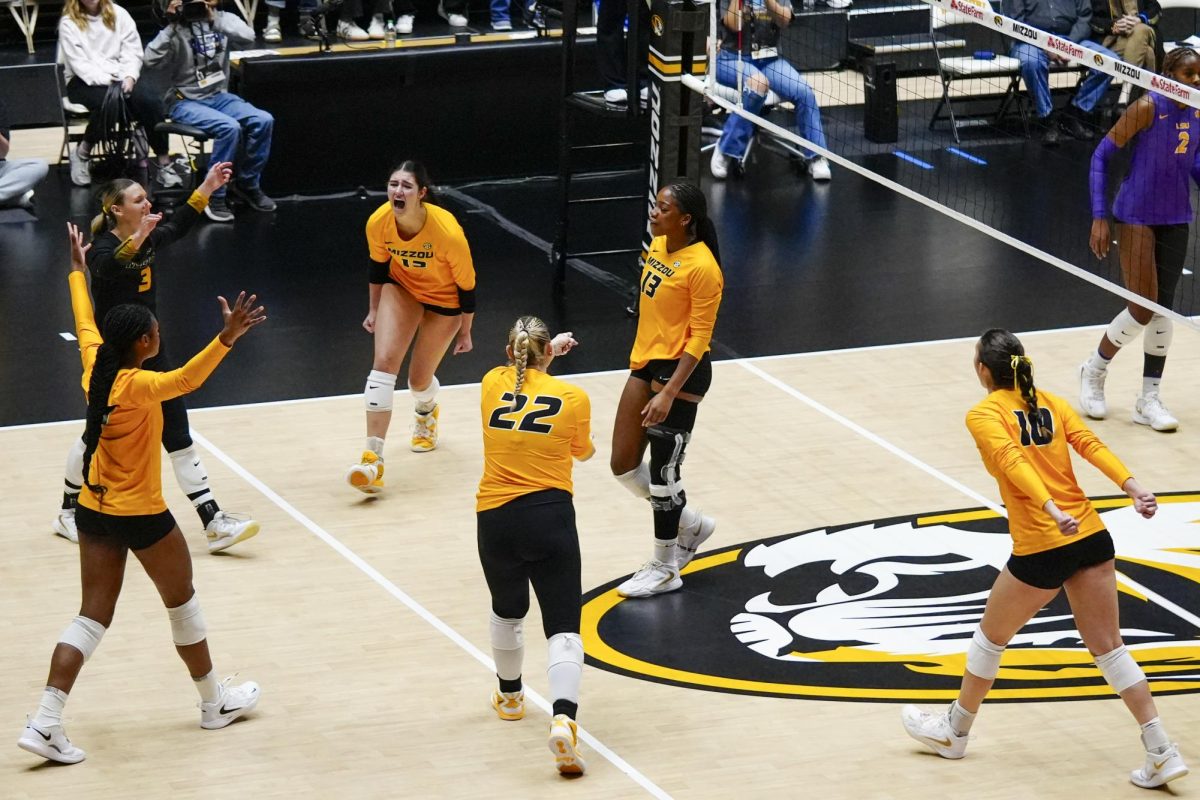For Missouri football coach Gary Pinkel, “SEC” wasn’t the peak and “DGB” wasn’t the highlight.
The past year’s switch to the Southeastern Conference and addition of Scout.com’s No. 1 football recruit Dorial Green-Beckham were building blocks in the path to a new life for Missouri football, one Pinkel hopes to brand nationally with the acronym: “MIZ.”
He said he recognizes he can’t do it alone.
“What we need to do because we’re in the SEC is up the facilities,” Pinkel said in his last press conference, a Feb. 1 introduction of the 2012 recruiting class. “…What do you want to be? We have some really good facilities, but bottom line is you have to compare it to what we’re going against. We need to do some upgrading.”
The athletics department answered Pinkel’s call Monday. Athletics Director Mike Alden emailed students [“A Letter to Tiger Nation,”]( http://www.mutigers.com/genrel/022012aaa.html) detailing a plan to overhaul the game day operations at Faurot Field.
“As competitors, that’s what we do: seize the opportunities, challenge ourselves and commit to achieving success,” Alden said in the letter.
The plan, which includes a $1.5 million renovation to Faurot Field and changes to ticket prices, is Pinkel’s idea of boosting revenue placed into motion. As Missouri transitions to the SEC, it carries a current maximum stadium capacity (71,004) smaller than its new league’s average attendance last season (75,832).
Missouri will also enter a new economic world in the SEC. Based on [the most recent fiscal year budget statistics provided by the U.S. Department of Education]( http://businessofcollegesports.com/2011/12/28/top-50-most-profitable-fbs-football-and-mens-basketball-programs/), the Missouri football program corralled just under $25,000,000 in revenue during the 2010-11 season, placing it behind 10 of the 12 current SEC members. Missouri’s 2010-11 expense budget of just more than $20,000,000 placed it behind seven of the 12 SEC members. The top two revenue generators in the SEC, Alabama and Georgia, made more than triple Missouri’s total during the same time period.
“All the schools in the country that build great facilities have alumni that stand up and financially support them,” Pinkel said.
Leveling the playing field with facilities is only part of the new SEC recruiting battle. As the switch in leagues renders the South’s fertile recruiting grounds, Pinkel said he and his staff must tweak the type of players it seeks for future classes.
As its focus shifts from the West and Midwest to the South, the Missouri football staff will spend its earliest recruiting efforts researching the southern counties that produce Bowl Championship Series players and establishing relationships within those areas. Pinkel said this stage of the process is crucial to catching up to league competition.
“We’ll mass communicate by mail, by email, to all the schools, counselors, principals. I mean mass, numbers you can’t even imagine,” Pinkel said.
If recruiting rankings are an indication of talent pool, the South will provide Pinkel and his staff plenty to choose from. More than one-third (34) of [Rivals.com’s top 100 prospects]( http://rivals.yahoo.com/footballrecruiting/football/recruiting/rankings/rank-rivals100/2012) for 2012 come from states with current SEC representation. Likewise, current SEC schools hold down 10 of Rivals’ top 33 team rankings for 2012, all ahead of Missouri (No. 34).
Missouri will spend years attempting to build up an SEC pipeline to mirror the one it boasts in Texas, the provider of more members of the Tigers’ 2012 recruiting class than any other state and the home to 35 players on last year’s football roster. Although Pinkel hopes to maintain the Texas pipeline through fostering connections and fueling competition with fellow SEC transfer Texas A&M, he also hopes to construct similar bonds down south.
“The best thing you can do is have your player be successful and go back home,” Pinkel said. “That’s what eventually happens here. They go back home and tell their coaches, ‘Hey, that’s a great place. We love being there.’”
In addition to adding recruits from the South, Missouri will look to continue drawing in-state students to the area’s landmark public institution.
Andy Hill, wide receivers coach and one of the staff’s lead recruiters, dismissed the idea that extended travel times to away games in the SEC will deter interest from in-state prospects. He said that for games in the Big 12, families already had to frequently make the choice between a plane trip and watching the game on TV.
Both Hill and Pinkel felt that SEC membership could help the school’s recruiting of nearby athletes.
“Someone in Iowa might want to come and play in the SEC, and we’re the closest school to them,” Hill said.
It’s that SEC brand – the prestige of playing in a historically stable conference that has produced the last six BCS national champions – that gives Pinkel and crew excitement as they move to a new home.
“There’s a lot of football in the country, but there’s one place that really plays football, and that’s the Southeastern Conference,” Pinkel said.














